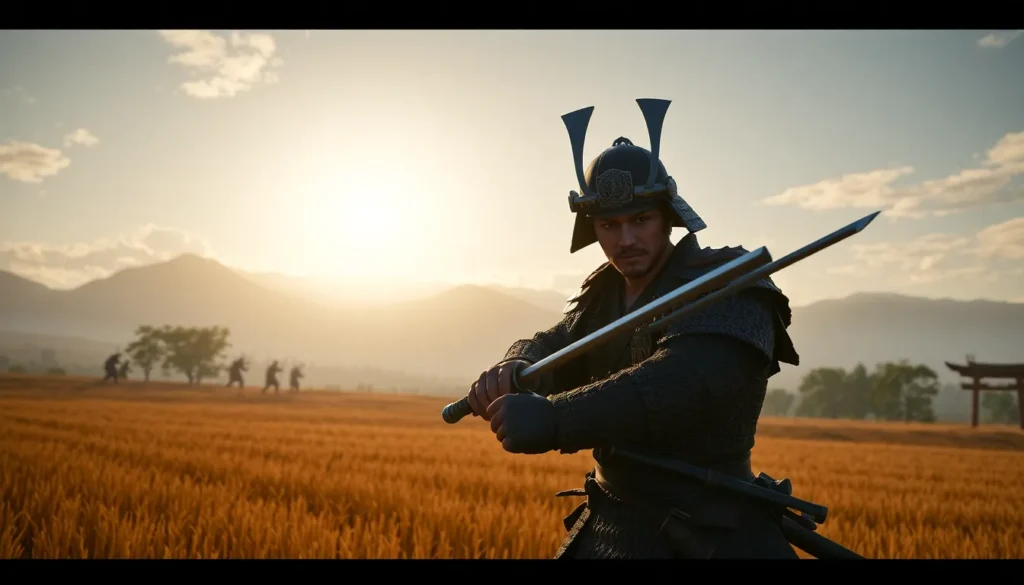Table of Contents
ToggleWhen players jump into the Samurai epic, Ghost of Tsushima, they’re greeted with breathtaking landscapes and intense battles. But amidst the beauty lies a burning question: does the game feature multiple endings? As they traverse the hauntingly beautiful island of Tsushima, players not only engage in combat but also grapple with deep moral choices. And let’s face it, nothing adds to the thrill like knowing that every decision might lead to a completely different fate, kind of like choosing between pizza or sushi for dinner. So, grab some popcorn, because this intriguing journey of choice and consequence is worth exploring.
Overview Of Ghost Of Tsushima

Set in 1274 during the Mongol invasion of Japan, Ghost of Tsushima follows Jin Sakai, a young samurai. As he battles against overwhelming odds, Jin finds himself torn between tradition and the necessity for change. The game masterfully combines stunning visuals, a rich story, and an open-world format that encourages exploration. Players can traverse fields of golden grasses, climb mountains, and engage in intense sword fights, all while grappling with the weight of their decisions. Developed by Sucker Punch Productions, this action-adventure game received critical acclaim, notably for its narrative depth and artistic design.
Understanding its appeal requires grasping how player agency shapes the journey, a unique feature that sets this game apart in the crowded landscape of action-adventure titles.
The Concept Of Player Choice In Video Games
Player choice has become a pivotal aspect in many modern video games. The idea that each decision can lead to various outcomes not only enhances replayability but also creates a deeper emotional bond with the story. Titles like Mass Effect and The Witcher series have built their identities around this concept, offering intricate narratives that shift based on the player’s choices.
In Ghost of Tsushima, players are faced with critical moments that allow them to either adhere to samurai tradition or adopt a more ruthless approach to combat. This duality embodies the age-old conflict between honor and survival, a theme resonant in many legendary tales of old. As players venture through Jin’s journey, each decision enriches the narrative, making the journey uniquely personal.
Exploring The Endings Of Ghost Of Tsushima
Ghost of Tsushima indeed boasts multiple endings, shaped by Jin’s choices throughout the game. The narrative culminates in two distinct paths, each adding layers of complexity and emotional weight.
Factors Influencing The Game’s Endings
The primary factor influencing these endings revolves around the player’s moral choices. As Jin engages with various characters and faces moral dilemmas, each decision acts like a pebble dropped in a pond, creating ripples throughout the narrative. For instance, choosing to spare or execute key characters can lead to different consequences, eventually steering Jin towards one of the game’s two endings.
The Different Paths: Honor vs. Survival
This brings us to the heart of the matter: the Honor Route, representing Jin’s commitment to samurai values, and the Survival Route, which reflects his deepening understanding of the pragmatic, harsh realities of war. In one ending, Jin upholds the samurai code, which signifies a poignant dedication to his traditions but at a personal cost. Conversely, in the other, he embraces a darker path, leading to an intriguing yet tragic resolution that challenges the established norms of honor and duty.
Impact Of Decisions On Character Development
The decisions made by players throughout Ghost of Tsushima significantly affect Jin’s character development. As he grapples with the implications of his choices, players witness a transformation rooted in conflict. Does he remain a noble samurai, or does necessity force him to become someone darker? This character arc is not merely for show: rather, each choice prompts players to reflect on broader themes of honor, loyalty, and moral ambiguity.
Strikingly, the narrative doesn’t simply penalize players for their choices: it invites them to ponder the cost of each path. This thoughtful exploration of character not only deepens engagement with Jin’s story but challenges players to reassess their values in the face of adversity.
Fan Reactions To The Game’s Endings
Fan reactions to the ending of Ghost of Tsushima have been as varied as the game’s breathtaking landscapes. Some players praise the depth of morality woven into the narrative, celebrating the emotionally charged endings as fitting conclusions to Jin’s journey. Others, but, have expressed disappointment if their choices did not lead to the desired outcomes, showcasing the game’s ability to elicit passionate responses.
Communities online buzz with discussions, theories, and shared experiences, further emphasizing how deeply players invest in Jin’s story. Conversations often jump into the nuances of honor versus survival, with players dissecting their choices and reflecting on what they would have done differently.
This level of engagement illustrates the power of interactive storytelling, showing how Ghost of Tsushima has transcended mere gameplay to become a shared experience.







